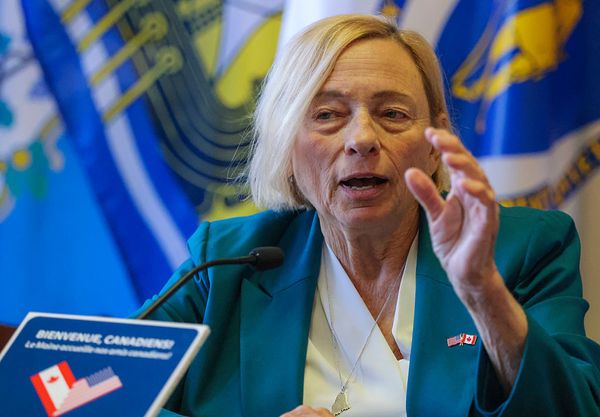Top investors tend to keep score by accumulating more. They measure their success by their ever-expanding wealth. David Swensen had a different yardstick.
Swensen didn't try to amass billions for himself, although he could have. A brilliant investor, he preferred to apply his skills to benefit his employer, Yale University.
Swensen (1954-2021) managed Yale's endowment fund from 1985 to his 2021 death at age 67 from kidney cancer. When he took the job in 1985, Yale's endowment was $1.3 billion. By 2021, it stood at $42.3 billion. During his 36 years as chief investment officer, Yale's annualized gain of 13.7% beat the average endowment by 3.4% per annum.
"Swensen was widely regarded by other investors as one of the greatest in the world," an obituary writer noted. "But he's not a household name" because he worked for Yale rather than garnering fame as a Wall Street titan.
David Swensen: Embrace Creative Thinking
Like many innovators, Swensen rejected conventional wisdom. Rather than follow the then-popular 60/40 asset allocation of domestic stocks and bonds, he applied modern portfolio theory to endowment investing.
That meant prioritizing diversification and integrating alternative assets such as hedge funds, real estate and private equity. Swensen cut exposure to fixed income, commodities and similar asset classes in favor of equities — investing for decades into the future.
"He had a set of core truths that he called 'first principles,'" said Ted Seides, who worked for Swensen for five years in the Yale Investment Office. Swensen "had extreme discipline to stick to those principles," which were based on research by his mentor, Nobel Prize winner James Tobin and Nobel laureate Harry Markowitz.
"He came into the office every day with a mental attitude and fortitude of someone with a perpetual long-term time horizon," said Seides, who hosts the Capital Allocators podcast. "It was a visceral feeling and discipline: 'What's really important is getting this right over a long period of time.' That was part of his recipe for success."
Be A Font Of Wisdom
Swensen's colleagues didn't just admire his brilliance in investing Yale's endowment fund. They also appreciated his eagerness to educate and elevate the lives of those around him.
"He oozed wisdom with everything he said," Seides recalled. "I've only met a few people like that. Warren Buffett is one. Seth Klarman is one."
A self-described chatterbox as a kid, Seides remembers how Swensen advised him to make every word count. Rather than lecture his young employee, Swensen shared a story.
"David told me he was doing due diligence on a (bank CEO) joining the Investment Committee," Seides said. "He (liked) that this person was judicious in his words, that he had high signal-to-noise," expressing himself clearly and concisely with minimal fluff.
Seides got the point — and welcomed the way Swensen delivered it.
Enjoy The Mentor Role
A master talent-spotter, Swensen hired many future stars in the institutional investment industry. And he enjoyed mentoring them.
He hired Paula Volent, a Yale School of Management student, to help file documents. Swensen encouraged the newbie to ask questions. She intended to pursue a career as an art conservator at museums. But Swensen turned her campus job into a life-changing learning experience.
"He always invited interns into management meetings and wanted us to ask questions," recalled Volent, chief investment officer of the Rockefeller University.
Put Your Team To The Test
Swensen tested her inquisitiveness in playful ways. "He used an acronym (in conversation)," she said. "Afterward he said, 'You didn't ask what that acronym meant. I made it up.'"
She started to notice that Swensen didn't just love to teach. He was also a lifelong learner. "Our questions made him a better investor," she said. "They kept David current and he was always curious" and eager to engage others to learn and grow.
Swensen: Teach Future Stars To Shine
As Swensen gave Volent more responsibility, she grew into the job and thrived. His passion for teaching and investing proved contagious.
As a result, she redirected her career. Volent served as chief investment officer at Bowdoin College for 15 years before joining the Rockefeller University in 2021. During her time at Bowdoin, the Maine college's endowment beat Yale's 10-year return. "David was competitive," she said. But he was also gracious.
He wrote a letter to his protege to laud her success. He wrote, "Congratulations Paula — poor is the pupil who does not surpass the teacher," a quote from Leonardo da Vinci. Volent framed the letter. It remains mounted on her office wall to this day.
Apply Skills Broadly
Swensen didn't just run Yale's endowment. Throughout his career, he also taught finance and economics courses to undergrads and graduate students.
But his love of teaching transcended the classroom.
He urged his Yale Management Office team to read a wide range of books to expand their knowledge. For example, he recommended that Volent and her colleagues read Jonathan Weiner's "The Beak of the Finch," a Pulitzer Prize-winning nonfiction book on evolutionary biology.
"He found it intriguing and thought it was applicable to help us think outside of the box," she said. "He wanted us to be well-rounded. The liberal arts were important to him."
Use Feedback To Sharpen A Team's Communications
Like any good teacher, Swensen pounced on opportunities to give useful feedback. That helps explain how so many of his young hires at Yale embarked on successful careers managing endowments for large institutions.
Both Seides and Volent credit Swensen's meticulous editing of their memos as a lasting lesson in how to write well. With his red pen, he'd go line by line making suggestions to tighten the text and improve the flow.
"Four times a year, we'd prepare materials for the Investment Committee," Seides said. "David would sign off on every single memo after he'd edit it. I've written three books, and I learned to write from David."
A charismatic public speaker, Swensen also coached his team to polish their presentation skills. He would videotape their practice speeches and provide constructive input on their content and delivery, Volent says.
Find Balance In Your Life
A diligent, detail-oriented worker, Swensen modeled work-life balance. His employees took notice.
"He believed deeply in balance," Seides said. He played softball with his staffers and hosted tailgate parties at Yale sports events. As his stature grew, Swensen wrote a book about his investment strategy. "Pioneering Portfolio Management: An Unconventional Approach to Institutional Investment" appeared in 2000.
His cancer was diagnosed in 2012, when the median survival for his condition was 18-24 months. He lived another nine years. His oncologist admired Swensen's courage throughout the ordeal. When asked to rate his pain on a 1-10 scale, Swensen never rose above a four.
"When asked how he was feeling, 'I'm doing well' meant everything was stable, 'fair' was not too good and 'so-so' was terrible," his oncologist said at Swensen's memorial service. "He rarely complained, even in the most challenging of times."
David Swensen's Keys:
- Pioneering investor who ran Yale's endowment fund for 36 years, producing a stellar track record of outperformance.
- Overcame: Nine years of battling cancer while still continuing to excel in his work.
- Lesson: "Establishing and maintaining an unconventional (approach) requires ... frequently appearing downright imprudent in the eyes of conventional wisdom."







